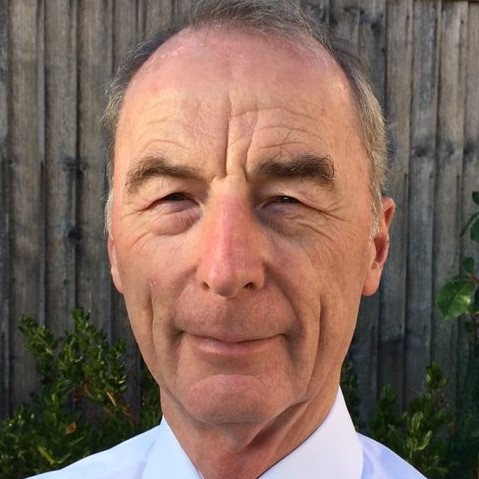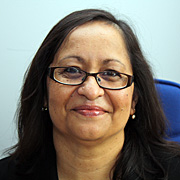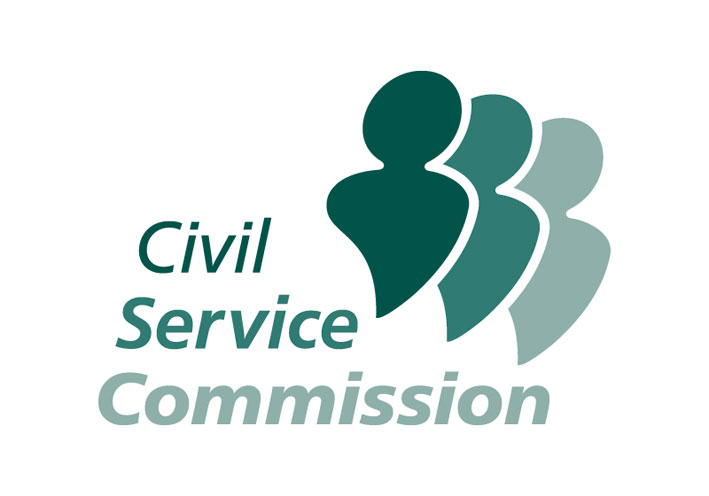The Civil Service Commission is launching a ‘Commissioners’ Mark of Excellence’ to showcase outstanding innovation and commitment in the recruitment of diverse candidates across all grades into the Civil Service.
The award will champion diversity in its broadest sense, supporting the Government’s priority of ‘levelling up’ and the Civil Service reform agenda of an innovative and skilled Civil Service.
With our shared aims of encouraging people of all backgrounds to reach their potential in the civil service, cross-government networks have endorsed and support this award, along with the Cabinet Secretary, Simon Case:
“This new award will highlight innovative hiring practices that help attract and recruit diverse fields of candidates for a career in the Civil Service. The Civil Service has an incredible array of different roles and functions – from data analysts to work coaches and prison officers. Recruiting talented individuals, from a wide range of backgrounds across the United Kingdom, is vital to effectively deliver government services and ensure the Civil Service truly reflects the country it serves.”
How to Apply
The Commissioners’ Mark of Excellence is open to all departments and organisations that are audited by the Civil Service Commission. If you would like to be considered please refer to the compliance scorecard survey which is sent to you as part of the Commission’s compliance audit in March or ask your Head of HR.
The award will be judged by a panel, led by Natalie Campbell MBE, made up of independent Commissioners, representatives from cross government networks and private sector figures. The Mark of Excellence will be given to the department/s or organisation/s that have demonstrated consistent excellent practice in promoting a career in the Civil Service and widening opportunities to reach a more diverse demographic.
For example:
- Improving wording of job descriptions and advertising strategy to encourage greater diversity.
- Outreach – for example, leaders working with schools and organisations across the country to provide mentoring, employability skills training and work experience.
- Schemes and programmes - for example, the Care Leaver Internship Scheme, Summer Diversity Internship, Early Diversity Internship Programme, Autism Exchange Internship, Going Forward into Employment, Movement to Work etc.
- Entering the Top 75 Social Mobility Employers register for the first time.
- Great Place to Work for Veterans initiative
Winners and case studies will be published in the Commission's Annual Report & Accounts, on its website and throughout Civil Service social media channels. On the back of the Commission’s successful ‘Diverse senior leaders talk about working in the Civil Service’ blog series that we regularly publish, we will interview the winning teams to both commend their efforts and ask how they achieved their diversity success to act as inspiration for other departments. Winners will be able to publicise their achievement with an award logo on all their recruitment advertisements for one year.
For further information on how to apply please contact Heidi Ferguson - heidi.ferguson@csc.gov.uk

Tell us a little about yourself and your career background?
I studied an Economics and Accountancy degree at University with vague thoughts of becoming an accountant, however I had started to become fascinated by the emerging possibilities for computing and so, when I left University, I was very excited to join ICL, a large UK-based computer manufacturer. I trained initially as a COBOL programmer (apparently a rare skill these days!) and then as a data analyst and worked as a data analyst for the next 5 years or so before being given the chance to run the company’s Data Analytics business, which was the first time I had had full accountability for all aspects of business management. I have to say that I loved the responsibility and ran the business unit for the next five years.
At about the height of the so called “dot.com boom” in 1998 I moved to KPMG Consulting to run their High-Tech practice, a business and technology consulting group that worked with clients across the High-Tech sector and with many of the “dot.com” start-up businesses. Needless to say that was great fun but also a bit of a rollercoaster ride as the “dot.com boom” quickly turned into the “dot.com bust”! KPMG then gave me my first real taste of working with the Public Sector as I moved to run KPMG Consulting’s Health Applications business.
From there I became a Director of a Public Sector consulting business called Detica and through the 2000s we had a phenomenal time, growing the business at about 40% per annum until the company was acquired by BAe Systems in 2009. That seemed like a good time to move on so I joined the French IT Services business Capgemini, and over the course of 8 years I was responsible for their Public and Private Sector businesses in the UK and Northern Europe.
My final career move in the commercial sector was to become Senior Vice President for NTT DATA in Northern Europe. NTT is a large Tokyo-based conglomerate, 60th largest business in the world, running some of the world’s largest Public Sector digital transformation programmes and I was responsible for that work in Northern Europe.
I have always had a strong belief in the importance of public services for the wellbeing of all in our society and so in 2019 I decided to step back from my commercial business roles and concentrate on Non-Executive work with Government in the UK. Over time I was lucky enough to be offered Non-Exec Director roles with the Ministry of Justice, the Department of Health and Social Care, BEIS and the Department for Education. In many ways this has been the most rewarding work of my career, and so I was delighted when I had the opportunity to apply to join the Civil Service Commission as a Commissioner.
Away from work I am married with four children, three grown up daughters and a son who is just about to sit his GCSE exams. My wife is the Business Manager for a school here in Hampshire, one of our daughters is a mental wellbeing practitioner for the NHS, one is a teacher and one has followed me into the digital and technology sector. In our spare time my son and I seem to spend most of our time travelling around the south of England watching football and cricket matches, some of which he plays in. Idyllic in the summer, pretty cold in the winter!
What made you want to apply to be a Civil Service Commissioner?
Throughout my business career it has always been clear to me that one of the most important things for a business leader to do is to ensure that all leadership talent can blossom and fulfil its potential. And that ethos is at the heart of the Civil Service Commission. Moreover I have seen first-hand, in my own businesses, that diversity of experience and thought is critical for any organisation, and can be a real, significant differentiator and an enabler of extraordinary organisational performance. And if through my work as a Civil Service Commissioner I can help to promulgate that culture in the UK Civil Service I will be delighted.
As a new Commissioner, what do you think the Civil Service could do better to help attract a wider range of candidates?
The UK Civil Service is a great place to work, with a huge range of roles and opportunities which can provide the most rewarding career experience. We should think about how we articulate the “whole” Civil Service offer, including career potential, culture and environment, purposefulness, geographic coverage, all rewards and benefits, breadth of opportunity, etc.
Which Departments will you be the linked Commissioner for?
I will be Link Commissioner for the Department for Digital, Culture, Media and Sport and for the Department for International Trade. I will also be the Link Commissioner for the Government Commercial Function. All of which I am looking forward to working with enormously.

Tell us a little about yourself and your career background?
I was born and educated in Belfast and was the first in my family to remain in education after the age of fourteen. I enlisted in the Ulster Defence Regiment as soon as I turned eighteen and was subsequently commissioned, commanding a rifle platoon for two years. On graduating from university [LLB Hons], I joined the Royal Ulster Constabulary under the then Graduate Entry Scheme. I served throughout Northern Ireland and then transferred to the West Midlands Police as a Superintendent. That experience of policing a predominately urban and ethnically diverse population was followed by two chief officer roles in North Yorkshire which was totally different. In 1999 I was appointed as the Chief Constable of Hampshire Constabulary. I have to say that I thoroughly enjoyed that role for over nine years with Hampshire and the Isle of Wight providing every possible policing challenge. On retiring from the police, I spent a year in Israel/OPT advising and supporting the Palestinian Civil Police as Head of the EUPOL COPPS Mission. I was then fortunate to undertake a series of public service appointments which I felt were worthwhile, interesting and to which I believed I could contribute. I was the first ever House of Lords’ Commissioner for Standards and most recently the Judicial Appointments and Conduct Ombudsman.
On a more human and important note, I am married to Mary, a retired Nurse and Midwife, with one grown up daughter. The final member of our family being an assertive White West Highland Terrier.
What made you want to apply to be a Civil Service Commissioner?
I have always believed in a professional, nonpartisan public service where advancement is based solely on merit. Thus, the core mission of the Civil Service Commission is one I identify with, and I feel my professional background is relevant to the role.
As a new Commissioner, what do you think the Civil Service could do better to help attract a wider range of candidates?
I recognise that responsibility for recruitment is primarily a matter for the Civil Service itself. However, the Civil Service Commission has historically sought to encourage and support diversity and inclusion initiatives within the context of a service appointed on merit following fair and open competition. Personally, I would like to see the Civil Service capitalise on the reality of its work. Thus, the idea of a ‘Your Nation, Your Service’ type campaign appeals. The Civil Service is intrinsic to nearly every aspect of national life and a service which represents the nation is, better equipped to deliver in a relevant and effective manner. I suspect the Civil Service is seen by many citizens to be composed solely of tax officials and benefit office personnel, presided over by male and female versions of Sir Humphrey Appleby. The reality is obviously far more diverse, and that reality should be better promoted. In essence, the Civil Service has a range of employment opportunities which should appeal to and provide opportunities for everyone.
Which Departments will you be the linked Commissioner for?
I will be the Link Commissioner for the Ministry of Defence and the Department for Education. Two large but very different departments.
This is the first blog in a new series of posts that will be introducing our newly appointed Commissioners.

Tell us a little about yourself and your career background?
I joined in the civil service in 1979, having left school earlier that year to work on a farm. I started as a clerical officer and after a few months I transferred into computing, which I suppose would be called digital now. I learned how to be a computer programmer and then a systems analyst, and then moved to the Criminal Injuries Compensation Board to be responsible for their computer section and their appeals casework. My next role was to lead on fisheries quota management and licensing, including UK wide and EU negotiations; then I returned to digital where I was responsible for the implementation of technology and systems for the Scottish Parliament which was established in 1999. My final role in digital was the head of the digital profession and director of technology for the Scottish Executive. I then moved on to policy roles, the first of which was Director of Social Justice and then Director of Primary and Community care in NHS Scotland, and then HR Director in the Scottish Government, where I led a substantial restructuring across the whole organisation. I was appointed Director General for Rural Affairs, Environment and Services in 2009, Director General for Governance and Communities in 2010, and in late 2013, Chief Executive of NHS Scotland and Director General for health and social care. I left the civil service in early 2019 I now have a portfolio of roles including the Open University, University of Glasgow, the Care Inspectorate in Scotland, the Royal College Physicians Edinburgh, and consultancy.
I have been married since 1982, which is a testament to my wife’s good nature and patience. We have three adult children, all of whom are married and live within a 3 mile radius of us, and we have four grandchildren aged from 9 months to six years old, who are a source of joy and perspective.
What made you want to apply to be a Civil Service Commissioner?
I believe that open, fair and transparent recruitment is essential to maintain and build public trust in appointments to the civil service. I think that the Commission fulfils a valuable role in this regard and I believe that there is scope to increase its impact in terms of diversity and openness.
As a new Commissioner, what do you think the Civil Service could do better to help attract a wider range of candidates?
The civil service should continue to develop its narrative about the wide range of roles available, and the many different ways in which civil servants serve the population. It should also put further effort into attracting and recruiting a diverse range of people from as wide a range of backgrounds and circumstances as possible, to enhance the insights available to it, and to develop the credibility of its policy and delivery.
Which Departments will you be the linked Commissioner for?
I will be the linked Commissioner for the Scottish Government and I look forward to working with them, and with other departments, to secure the best possible candidates for the diverse range of roles offered by the civil service.
The Civil Service Commission is an independent statutory body that oversees appointments to the Civil Service, ensuring that they are made on merit on the basis of fair and open competition. Commissioners also promote and hear appeals brought under the Civil Service Code.
The new Commissioners come from both private and public sector backgrounds and will bring valuable experience to the Commission. They are:
Paul Kernaghan

Sarah Pittam

Martin Spencer

Paul Gray

The new Civil Service Commissioners have been appointed by Her Majesty on the recommendation of the Minister for the Civil Service after an open competition.
The Chancellor of the Duchy of Lancaster and Minister for the Cabinet Office, the Rt Hon. Steve Barclay said:
“The Civil Service Commission plays an important role in ensuring a high performing Civil Service that is well placed to meet the challenges of the future. I strongly welcome the appointment of these four new Commissioners, who will bring a range of valuable experience and expertise to the Civil Service Commission. ”
Ian Watmore, the First Civil Service Commissioner said:
"These new Commissioners arrive as I step down after my statutory five year term. They individually and collectively bring much to the Commission, and they will join an outstanding current group of Commissioners, led by Rosie Glazebrook until my successor is appointed. I am confident that I am leaving the Commission in good hands as a result and wish them all the best of luck in what is a great role."
The new Commissioners announced today will join the Commission Board from 1 October 2021. Commissioners work part-time, typically between four and eight days a month.
Rosie Glazebrook has been appointed as the interim First Civil Service Commissioner while the Cabinet Office completes the appointment process for Ian Watmore’s successor.
The First Civil Service Commissioner leads the Civil Service Commission, which regulates appointments to the Civil Service and hears appeals from civil servants under the Civil Service Code. The First Commissioner also chairs the recruitment panels for Permanent Secretary posts.
Ian Watmore’s 5-year term ends on 30 September 2021.
Rosie Glazebrook has been a Civil Service Commissioner since 2017. She currently chairs the Copyright Licensing Agency and its associated company Publishers’ Licensing Services. She is also a Council Member of the General Optical Council and chairs a NHS Research Ethics Committee and a Member of BSI’s Standards Policy and Strategy Committee. Her previous Board/Non-Executive Director positions include the Food Standards Agency and in NHS, regulatory and commissioning bodies. Rosie previously held commercial positions in the private sector in media, publishing and health data organisations.
The deadline for applications for the post of First Civil Service Commissioner closed on 13 September and an announcement will be made by the Cabinet Office in due course, following cross party consultation. The preferred candidate for First Commissioner is also subject to pre-appointment scrutiny by the House of Commons Public Administration and Constitutional Affairs Committee.
Watch a short film about the work of the Commission
PRESS NOTICE 21 July 2021
Civil Service Commission – annual report and accounts 2020 - 2021
The independent Civil Service Commission, which regulates Civil Service appointments to provide assurance that they are made on merit after fair and open competition, published its annual report for 2020 – 21 today.
The annual report contains a range of statistics and information about the Commission’s work including:
- 60,487 people were recruited to the Civil Service through open and fair competition this year, up 53% on the previous year.
- Commissioners chaired 163 competitions at senior levels this year, comparable with 161 in the previous year.
- Black and minority ethnic candidates made up 23% of people recruited (SCS Pay band 2 and below) in 2020 – 2021, up from 19% in the previous year.
- where declared 8% of people recruited reported having a disability, up from 6% in the previous year.
- 121 Code appeals received this year.
- The Commission accredited 25 ‘Life Chance’ schemes to support individuals from disadvantaged backgrounds into Civil Service roles.
Ian Watmore, First Civil Service Commissioner, said:
“This is my final report as First Commissioner. Looking back, since the current Commission came together in 2016/17, the UK has faced unprecedented challenges – whether from Brexit and COVID-19, socio-economic tensions, security concerns or the increasing pace of science and technology – and it has been ever more dependent on its Civil Service to respond.
“The Commission has played an important part in that response, acting as a flexible and pragmatic regulator, supporting the priorities of the government of the day, and working with Parliament to deliver the spirit of the Constitutional Reform and Governance Act. It does that by relentlessly doing the day job well - setting Recruitment Principles, leading and auditing recruitments, promoting the Civil Service Code, seriously investigating appeals and complaints, being flexible when we can and standing up to abuses when we must.
“And, as its ‘regulator’, we will continue to challenge the Civil Service strategically, to retain relevance and to be representative of the society it serves.
“As First Commissioner, I am personally most proud of what we have been able to do to develop accreditation schemes to enable people from disadvantaged backgrounds the opportunity to become civil servants, providing them with life chances, improving the diversity and lived experience of the Civil Service, and supporting government priorities such as reducing reoffending or supporting veterans. From a standing start, and overcoming all the obstacles that inevitably cropped up, the Civil Service now has a sustainable model for recruiting individuals who previously were not accessible to them – ex-offenders, military veterans, care leavers, people with Down’s syndrome, and many others.
“It has been an honour to lead the Commission through this period. As the UK begins its recovery from this unique period in history, I believe its role providing public assurance on the integrity of Civil Service appointments, as well as offering challenge and support to the Civil Service, is as important today as it has ever been.”
Download the 2020 – 2021 annual report (PDF, Opens in a new window)
Download the interactive 2020 - 2021 annual report (PDF, Opens in a new window)
Notes to Editors
- Media enquiries about the work of the Commission should go to Maggie O’Boyle on 07880 740 627.
- More information about the work of the Commission is available on its website www.civilservicecommission.independent.gov.uk
- You can also follow the Commission on twitter @CivServComm
- The Civil Service Commission was established as a statutory body in November 2010 under the provisions of the Constitutional Reform and Governance Act 2010. The Commission is independent of Ministers and the Civil Service. It is responsible for upholding the requirement that recruitment to the Civil Service is on merit on the basis of fair and open competition.
- The Commission comprises senior figures from the private, public and third sectors. Civil Service Commissioners are appointed by the Crown for five-year non-renewable terms of office. The Cabinet Office is currently recruiting new Commissioners following an open competition.
- Ian Watmore’s 5-year term as First Civil Service Commissioner ends in September. The Cabinet Office will be advertising the First Commissioner post in due course.
Naheed Hussain
In our eighth blog in this series, Naheed Hussain, Deputy Chief Crown Prosecutor - Legal Development - CPS, talks about her experience of working in the Civil Service.

About Naheed
Naheed is a Deputy Chief Crown Prosecutor (DCCP) in CPS headquarters. She leads the Team that is responsible for the delivery of legal training to Solicitors and Barristers in the CPS. Before moving to CPS HQ, Naheed has held DCCP posts in the Specialist Fraud Division as well as in London, Wales, Yorkshire and Humberside.
What do you think the civil service needs to do to attract more candidates from a more diverse background into senior roles? What advice do you have for recruiters?
I think it's important we really highlight the excellent HR policies we have in place and also the wealth of support that is available from staff networks and colleagues. Like others who have contributed to this series, I also think seeing diverse role models at senior levels is vital too. When people think of joining the Civil Service, if they see senior leaders being open about their disabilities, particularly the non-visible ones - it demonstrates that the Civil Service applies its policies and lives up to them.
What could the civil service do better to attract and retain civil servants from a more diverse background overall (at any level)? What do you see as the barriers?
I think we could do a lot more community engagement work, particularly at schools for the 15+ age group. The diverse and wide-ranging job opportunities available in the Civil Service and the opportunities for career development are not as well understood in my experience in BAME or disabled communities. I think the approach recently taken by GCHQ to attract candidates with neurodiverse conditions should be explored by other Departments too.
What has been your personal experience of working in the civil service? What made a difference to you?
I acquired my non-visible disability neurodiverse conditions following an accident when I was already in the Civil Service at an SCS1 grade. My department has been wonderful in supporting me at my current grade. I have also had a lot of support from the FDA and the Disability Staff Network. What has made a real difference to me has been the understanding and support of my team and my peers.
Why is diversity particularly important at senior levels?
For me, it's about representing the country we serve. A diverse workforce - and diverse senior leadership team - means we can get the best from our people and deliver outcomes that better serve all the communities in this country.
What experiences did you have working at a senior level in the private sector? Are there lessons that the civil service can learn from the private sector in terms of recruiting staff from a more diverse background?
I can’t really answer this as I have no recent experience of working in the private sector. From what I hear from peers in the private sector, the Civil Service is way ahead, at least in the legal profession.
What drives and motivates you in your career?
Essentially, I am motivated by the idea of public service. I want to do my best to contribute to a fair and effective criminal justice system.
What are your interests and hobbies outside work?
In my spare time, I enjoy paragliding, travelling, swimming (pre-Covid obviously), yoga, playing with my grandchildren, cooking and reading.
The second online disability event on Wednesday 28th April was aimed at both prospective candidates for Senior Civil Service roles who have a disability and hiring managers alike. The event was chaired by the Chief Executive of the Civil Service Commission, Peter Lawrence OBE. The panel of speakers included an independent Civil Service Commissioner, Rosie Glazebrook alongside Seonaid Webb MBE (Deputy Director, DEFRA and Deputy Disability Champion), Jo Oakley (CS Workplace Adjustments Service Team Leader) and John Knight (The Commission’s Disability Advisor).
The Civil Service Commission regulates recruitment into the Civil Service to make sure it is fair, open and merit-based. Commissioners personally chair recruitment competitions for senior roles.
The panel covered a range of topics of relevance, as well as giving hints and tips based on their own experiences:
- What are the Recruitment Principles?
- What do Commissioners look for?
- Interview tips and guidance
- Workplace Adjustments
- Q&As throughout via Slido
The full recording of the event can be found through the link below:
In addition, there were a number of unanswered questions on Slido that the panel did not have time to address during the live event. The questions and answers can be found below:
1. Does the civil service have to hire a certain amount of people with disabilities into senior management? Do they positively discriminate in any way?
No, there are no targets for recruiting people with disabilities into senior management. The Civil Service does not positively discriminate on any protected characteristics, although there are often positive actions available such as mentoring or development programmes that help prepare people for the future.
2. How do you counter the self-limiting belief that questions whether you only got the interview because of your disability?
Your disability is a part of you, but it doesn’t have to define you or limit what you can achieve. Know that you have met the minimum standards to progress to the interview stage through your skills, knowledge, experience and work ethic. Review your sift scores and any feedback. Speak to a coach/mentor/your line manager and take time to reflect on your CV, Behaviour examples and Personal Statement and everything you’ve achieved in your career to date.
3. I'm curious, why is there such a heavy presence of psychologists and psychometric testing during these recruitment processes?
Any assessments included in the process are decided in order to enhance the evidence about candidates and are tailored to the role.
4. When you are invited to interview - do they assess who goes forward simply from the interviews or do they take the application and interview into account?
All aspects of the evidence gathered during the process are taken into account. If there have been assessments, questions relating to these may be asked in the final interview, together with the initial application and final interview.
5. Do you have any tips for hiring managers who are recruiters on how to break down the perception barrier of DCS/GIS declarations on applications, being considered as unconscious bias and candidates not being progressed?
By ensuring there are diverse sift and interview panels who have completed the appropriate success profiles, disability confident and/or equality and diversity training. Anonymise this information from the sift process, and ensure the sift panel have set and agreed on a clear minimum standard or score prior to the sift taking place. Only share with the sift/interview panel the information they would need to be aware of as the candidate progresses through different stages of the recruitment process, e.g. if an individual was invited to interview the panel and those organising the interviews would need to be aware of any requested adjustments such as, for example, wheelchair access requirements, extended interview time, regular breaks etc.
6. Could a dyslexic person have interview questions in advance if they requested it as a reasonable adjustment? What are the Commission’s views on whether this gives them an unfair advantage over other candidates?
We would expect departments to consider each request for reasonable adjustments on its own merits, as well as considering whether one candidate is advantaged by the process. You would need to consider whether your process could be seen as creating a disadvantage to a person with a declared disability. The purpose of the Disability Confident scheme and reasonable workplace adjustments is to create a level playing field for someone with a disability. We would therefore expect you to consider the specific nature of the disability and take advice where necessary. Allowing sight of the questions shortly before the interviews, or granting additional time are all examples of reasonable workplace adjustments, as long as we can see the justification for using them, the Commission would be content.
One consistent record of the interview should be retained by the department, agreed by the whole panel, and the appointment made on merit.
7. Is there an alternative to lodging formal complaints when things seem to have gone wrong? Sometimes the process can feel somewhat Kafka-esque!
The first step is to seek feedback and find out why you were unsuccessful – the response may well explain what happened and why, leading you to review the basis of your complaint. If you remain dissatisfied, then you can make a formal complaint through the appropriate process as set out in the original advert.
8. With the new DELTA (Disability Scheme) programme being launched for this year's Future Leaders Scheme, do presenters feel that the way the Civil Service is run will need to fundamentally change to accommodate more disability in the SCS? Eg changing deadlines for papers, accommodating new ways of working for Board meetings etc?
As part of the CS Reform Agenda, Smarter Working in the Civil Service (formerly Build Back Better), is taking forward the positive lessons from the Pandemic on different ways of working. They are looking at hybrid ways of working, which will support accessibility and inclusion, health and wellbeing and work-life balance.
9. How do you go about getting an assessment for what adjustments you might need? Or do you suggest them yourself?
If you think you may need workplace adjustments (you will, of course, probably be best placed to judge) speak to your line manager and check on your department’s intranet site for Workplace Adjustment Guidance. The assessment routes will differ depending on which department you work in. The guidance should explain your department’s end to end workplace adjustment process and signpost you to the correct routes from assessments, through to the procurement of your adjustments. Some departments use the Civil Service Workplace Adjustment Service, others will have a central HR or Health & Safety team or line managers arrange assessments directly through their Occupational Health (OH) providers.
It is worth noting that OH assessments aren’t always necessary, and can cause unnecessary expense and delay implementing adjustments. Depending on the type of disability or health condition, and how long you have lived with this, you may know exactly what adjustments you need to remove any barriers and support you effectively in the workplace. Completing a Workplace Adjustment Passport might help your line manager to understand your needs and support you better.
If you have any other questions please email us at: info@csc.gov.uk.
Jolyon Thomson OBE
In our seventh blog in this series, Jolyon Thomson OBE, Deputy Director - International and Trade, talks about his experience of working in the Civil Service.

About Jolyon
Jolyon has been a Government lawyer for 25 years, primarily working on international and EU law in Defra’s areas of responsibility. He is currently Deputy Director (International and Trade) leading a team focusing on EU and global trade negotiations and before that, spent 18 years specialising in international environmental matters, for which he was awarded an OBE and share of the 2007 Nobel Peace Prize. He is registered blind and co-chairs the Government Legal Department’s Disability and Mental Health Network.
What do you think the Civil Service needs to do to attract more candidates from a more diverse background into senior roles? What advice do you have for recruiters?
I shall respond on the basis of what I know best, namely the position relating to civil servants with disabilities.
Civil servants need to see and hear from those at senior levels that have made it. Importantly, the message needs to be that not only is it possible to reach the Senior Civil Service (SCS) but also that it’s a viable and sustainable role. Many potential SCS candidates are self-denying in terms of how they perceive their own ability to operate effectively at that level.
We should certainly now be in a position in 2021, 25 years after the passage of the Disability Discrimination Act, to ensure reasonable adjustments, intelligent work planning, and other suitable arrangements can be made (at the suggestion of the candidate who will always know better than a line manager what is feasible) so that those with disabilities can thrive at senior levels. But that can only be achieved when the most senior leaders can see the benefits and opportunities of allowing disabled staff to play to their strengths, and for those staff to have the confidence that the system will operate in that way.
Targets for Senior Civil Service with disabilities (for Government Legal Department, that is 10%) help provide momentum but are only the start of the necessary culture change needed for both line managers and staff.
What could the Civil Service do better to attract and retain civil servants from a more diverse background overall (at any level)? What do you see as the barriers?
I think it is a combination of visible role models and effective targeting. Whilst the Civil Service is making great strides in ensuring that interview panels are appropriately diverse, candidates from diverse backgrounds need to be enticed to apply. There can be no substitute for a role model at a career fair (or to a lesser extent) in promotional material demonstrating how those from diverse backgrounds can make it to the Senior Civil Service (SCS).
Using the right opportunities for publicity is also important though. Many Government departments (including my own, the Government Legal Department) are members of the Business Disability Forum (BDF) alongside many significant private sector employers, thereby highlighting the fact that the Civil Service is very much open to disabled applicants.
What has been your personal experience of working in the Civil Service? What made a difference to you?
My first experience working for the Civil Service was in the early 1990s as a summer student following graduation in the Legal Department of the Ministry of Agriculture, Fisheries and Food. Significantly, the Legal Director and head of the department at the time was completely blind. That showed me, at first hand, and in my very first experience of the Civil Service, that disability did not matter, and those with disabilities could reach the top positions. Indeed, I should say that that in itself did not surprise me: I have never seen my own visual impairment as any reason to prevent me from undertaking the career that interested me, namely one involving international and EU law. The fact that the head of the division was also blind seemed entirely appropriate and no big deal really. It was only when I then moved into undertaking my legal training in the private sector that I realised how unusual that was.
Since becoming a permanent Government lawyer in 1996, my experience has been, in the main, hugely positive. I have received wholehearted support from the vast majority of my senior managers and have had no indication that joining the SCS would be a problem. Actually, in my interview for my first SCS role, the fact that I knocked over my water glass creating a wave of water that rushed towards the Panel’s notes, and the fact that we had to suspend the interview whilst they all hunted for paper towels, seemingly did not undermine their preparedness to offer me the role.
There have, though, been moments in my career where I have felt that managers have, seeking to do their best, nevertheless substituted their own judgments about the limits of my capabilities, which at the time was hugely demotivating and frustrating: following a major eye operation with an outcome resulting in significant sight loss, I was directed towards tabular work on screen rather than international negotiations, my area of expertise, which no doubt was arranged with the best of intentions by two Deputy Directors, but did not take account of my own views on what was possible.
Despite my favourable experiences, I have also come across instances where the question of disability has come up in the recruitment process. I was once asked at an interview why I thought I could do the role given my disability (and it was a simple legal advisory role), and I know of others who believe (whether rightly or wrongly) that they have been discriminated against when applying for promotion. I only hope, in this day and age, being on interview panels myself and letting my guide dog wander around the room hopefully de-stressing the candidate, that no one can be in any doubt that disability should not be a negative consideration in the recruitment process.
Why is diversity particularly important at senior levels?
The senior leadership of the Civil Service needs to represent the population it serves. With 11 million disabled people in the UK, it is right that people at large, and those with disabilities in particular, have the confidence that policy development, decision-making and delivery are carried out by those with an understanding of their needs.
What experiences did you have working at a senior level in the private sector? Are there lessons that the Civil Service can learn from the private sector in terms of recruiting staff from a more diverse background?
My own experience in the private sector, albeit at a junior level, does not compare favourably with my Civil Service experience. This was also a factor alongside the interest in the unique work offered for my decision to forge a legal career in Government.
As a legal trainee and assistant in a major commercial law firm, I was often neglected and given no work to do at times when my colleagues were overworked and could have done with support. I took this as a misunderstanding on the part of my employers as to what I was capable of, given my disability, and my regular requests for work (and concerns about my treatment) were not heeded.
Of course, there were one or two enlightened individuals back in 1995 who did have confidence in me and provided the support that they could. But my treatment did make me feel like an outsider compared with my peers, and I was determined to make a career ultimately in Government, but first with a foray to Brussels to work for the European Commission and some EU law barristers, where my experience was entirely positive.
These days City law firms recruit on the basis of points systems, where points are added for those with extenuating circumstances, often for social mobility and other reasons designed to favour those who would otherwise be overlooked. Whilst in GLD we are particularly keen to attract applicants from diverse backgrounds, tailoring our summer placement and recruitment schemes accordingly, there is always something to learn from the way others do it. Diverse groups are more underrepresented at senior levels in the private sector in the main, and this will only improve over time as the pool of candidates at lower levels becomes more diverse.
Specific initiatives exist e.g. the 30% Club or Ginger to encourage underrepresented groups into senior roles, or to increase the self-confidence of applicants in terms of public speaking, and we need to ensure that our own internal Civil Service and Government Legal initiatives (for example Race to the Top and REACH for those with disabilities) can keep pace with what is known to work and put people into senior roles.
What drives and motivates you in your career?
Two things: firstly, the unique nature, challenge and interest of the work we do within Government; and, secondly, the wish to develop and bring on others to share in that sense of enthusiasm, passion and fulfilment. In applying the latter, it is my belief, based on my own experiences that I have relayed here, that everyone should have the chance to fulfil their potential - whatever their circumstances.
What are your interests and hobbies outside work?
There hasn’t been much time for those lately thanks to Brexit demands and the constraints of lockdown. But I am very much looking forward to the time when I can go out for a proper walk with my yellow Labrador guide dog Melody, preferably in some fresh Scottish air. When not constrained, I enjoy going to concerts and theatre. In the meantime, talking books are keeping me going.

